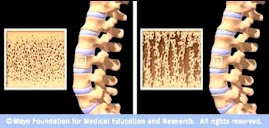Identical twins in Finland who
shared the same sports and other physical activities as youngsters but
different exercise habits as adults soon developed quite different bodies and
brains, according to a new study that highlights the extent to which exercise
shapes our health, even in people who have identical genes and nurturing.
The researchers found 10 pairs of young,
male identical twins, one of whom regularly exercised, while the other did not.
The dissimilarities in their exercise routines had mostly begun within the past
three years, according to their questionnaires.
The scientists measured each man’s
endurance capacity, body composition and insulin sensitivity, to determine
their fitness and metabolic health. The scientists also scanned each twin’s
brain.
The sedentary twins had lower
endurance capacities, higher body fat percentages, and signs of insulin
resistance, signaling the onset of metabolic problems. (The twins tended to
have similar diets, so food choices were unlikely to have contributed to health
differences.)
The twins’ brains also were unalike.
The active twins had significantly more gray matter than the sedentary twins,
especially in areas of the brain involved in motor control and coordination.
The researchers concluded the
following:
“Among healthy adult male twins in their mid-30s, a greater
level of physical activity is associated with improved glucose homeostasis and
modulation of striatum and prefrontal cortex gray matter volume, independent of
genetic background. The findings may contribute to later reduced risk of type 2
diabetes and mobility limitations.”
The study was small and not a formal
randomized trial. But the results strongly imply that the differences in the
twin’s exercise habits caused the differences in their bodies.
More subtly, the findings also point
out that genetics and environment do not have to be destiny when it comes to
exercise habits. Even if the input from our DNA and upbringing urges us to skip
the gym, we can move more, and, based on this study, rapidly and substantially
improve the condition of our bodies and brains.



No comments:
Post a Comment